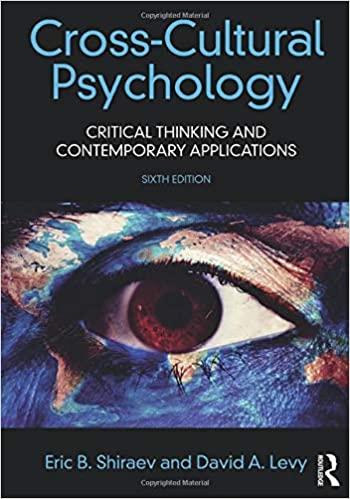Question
Anne was born at the end of November. When she started junior kindergarten, her parents discovered some of her classmates were 11 months older than
Anne was born at the end of November. When she started junior kindergarten, her parents discovered some of her classmates were 11 months older than she was. A family friend, who has a son the same age as Anne, decided that she would hold her son back a year so he would be more able to learn being older the next year. Anne's mother became a little concerned when she heard what her friend was doing. Did this mean that Anne, being almost a year younger than her classmates, would be disadvantaged and not as cognitively able and developed as her peers?
Numerous research studies have focused on this question and examined the relationship between age entry to school, cognitive development, and learning. In general, findings suggest that there is no evidence that younger children are cognitively less able to make gains than older children in academic competencies.
Many early childhood experts have called into question the very notion of "readiness." Clearly all children at all ages are "ready to learn." The meaningful question is not whether a child is ready to learn, but rather what a child is ready to learn. Even "reading readiness" - a concept with a long history in early childhood development - has little meaning in the context of current conceptualizations of emerging literacy, which includes general knowledge, language and vocabulary skills, and even early scribbling. The concept of readiness for school is also losing significance as increasing numbers of children attend preschool or day care programs. The appropriate policy question, then, is not what children need to know or be able to do when they get to school, but what schools need to do to meet the social and educational needs of the children who walk through their doors.
So why Anne should not be held back from starting kindergarten because of her age?
Step by Step Solution
There are 3 Steps involved in it
Step: 1

Get Instant Access to Expert-Tailored Solutions
See step-by-step solutions with expert insights and AI powered tools for academic success
Step: 2

Step: 3

Ace Your Homework with AI
Get the answers you need in no time with our AI-driven, step-by-step assistance
Get Started


